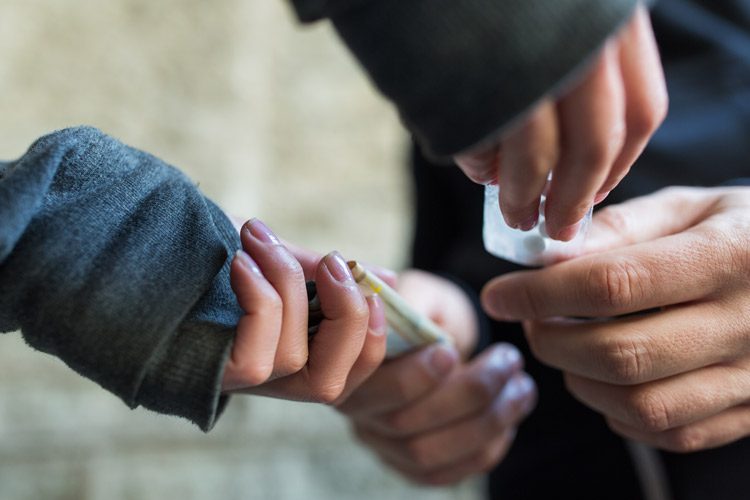People misuse different drugs for different reasons. For example, some drugs provide a spark of energy, a sense of excitement, and a feeling of invincibility. Others calm people down, providing relief from anxiety, and can make it easier to get to sleep.
Developing a Substance Use Disorder
Whether you are misusing a drug to get high or to get low, the results are often the same: the development of a substance use disorder.
Let’s take a look at two drugs with different impacts on the mind and body but that lead to the same sorts of dangers in the end.
The Eventual Agony of Ecstasy
Ecstasy (or MDMA) is a popular club drug. As its name suggests, the drug provides the user with a deep sense of well-being while also lowering their inhibitions and heightening their senses. Users may well think that taking Ecstasy is a quick and easy way to elevate a good time into a great time.
But using Ecstasy to artificially elevate your mood for a night on the town comes with some very real consequences. And none of them have anything at all to do with the experience of ecstasy.
Symptoms of Ecstasy abuse include:
- Increased tension in the muscles, increased blood pressure, and/or an increased heart rate
- Feelings of faintness and/or nausea
- Excessive sweating and/or chills
- An increase in feelings of impulsiveness, anxiety, and/or depression
- A reduction in sex drive, reduction in appetite, and/or difficulty sleeping
- Loss of consciousness and/or seizures
- A rapid rise in body temperature leading to kidney failure (or even death)
- Muddled thinking and ongoing confusion—including a reduction in cognitive function leading to issues with memory and attention
- Significant heart damage, which may include the development of arrhythmia (an irregular heart beat)
Valium Brings You Down in More Ways Than One
Valium (or diazepam) is a member of the drug class known as benzodiazepines (or benzos). The drug, like other benzos, is often prescribed to those struggling with an anxiety or panic disorder—and in that capacity it can be incredibly helpful. Valium works by literally slowing activity in the brain, which can tamp down ongoing feelings of anxiety and bring extremely welcome relief.
However, if the drug is misused—perhaps by someone who originally used it properly but has slipped into abusing the drug in an effort to sustain the feelings of calm it provides—it can cause all sorts of problems that have nothing to do with feeling relaxed.
Symptoms of Valium abuse include:
- Drowsiness, dizziness, and/or confusion
- Slurred speech, weakness, and/or impaired coordination
- Blurred vision and/or dilated pupils
- Markedly slowed breathing and/or an irregular heartbeat
- The development of skin rashes and/or changes in appetite
- An uptick in feelings of sadness and/or irritability
- Seizures
The Hurdle of Withdrawal
Once you start experiencing the negative impacts of drugs like Ecstasy and Valium, you may very well decide you should stop taking them.
That’s an excellent idea. Unfortunately, however, it might not be so easy. One of the drugs might get you high and the other might mellow you out, but despite these differences, they both present challenges—in the form of withdrawal symptoms—to the person trying to give them up.
Once your brain and body have gotten used to a regular supply of Ecstasy or Valium, they will likely react quite negatively to any attempt to cut them off from the drug. Withdrawal symptoms vary, but they frequently have one thing in common: extremely intense cravings for the drug you are trying to stop taking. These cravings can seem impossible to resist, and so many drug users find themselves trapped in a cycle of quitting, losing the battle to the withdrawal-inspired cravings, quitting again, starting again—and round and round it goes.
But fortunately, there is a way to get over the hurdle that withdrawal places in your path. You need to get help at a residential treatment center that offers medically supervised detoxification and a robust rehabilitation program.
We know just the place.
We Can Help You Beat Uppers, Downers, & Everything in Between
At Wooded Glen Recovery Center, we are committed to a personalized and compassionate approach to treating substance use disorders. We promise a judgment-free environment, evidence-based treatment practices, and a continuum of care that will help you build a strong foundation for your recovery.
We will also address any co-occurring mental health disorders—like anxiety, depression, or trauma-based issues—that may underlie your issues with substances. Good mental health and ongoing sobriety are tightly bound together, and Wooded Glen Recovery Center can help you strengthen and maintain both.

